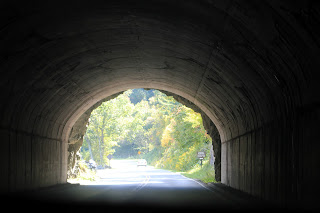Day 56
The idea of working nights theoretically sounds brilliant
with abundant amount of time available for self during the daytime. I have
worked nights for a long period of time and my wife worked days. The most
common argument in my household was “I work the same amount of time in the day
you work at night, but why are you more tired than I am?” An exceptionally
valid question, technically I should sleep straight for eight hours in the day
and become functional just like the daytime workers.
So here is my question: Is working daytime the same as
working nighttime?
In our argument, one of the biggest points I would
address was the pattern of sleep? Do you think people that work at night sleep
the same way people work during the day? People working during the day can
ideally sleep for straight six to eight hours at night. Is it possible for the
people working at night sleep straight for six to eight hours, or is their
sleep pattern intermittent into smaller segments?
I would say most of the people working nights would agree
that they sleep in segments. They will sleep for couple of hours after work and
then wake up and then sleep for couple of hours before going to their work.
What is the biggest problem with segmented sleep? The biggest problem with
segmented sleep is the inability to achieve the complete sleep cycle. Without
the complete sleep cycle, people working the nights would face a higher fatigue
ratio in comparison to the people working days. There is additional risk of
gaining weight because of eating to compensate the fatigueless level.
Do you think people working nights have to use medications
like Benadryl or sleeping pills to get a good day sleep? What are the potential
variations in the body because of the adaptations to the changing sleep pattern
during the day? What is the interference of sunlight or daylight affecting the
quality of sleep for the people sleeping during the day? Because of the
segmented sleep, is it possible for the people working nights sleeping longer
to cope with the disturbed sleep?
“A
good sleep cannot potentially cure my problems but definitely recharge my mind
and body to face the problems”
~Lenji Jacob
Reference
Picture: https://encrypted-tbn2.gstatic.com/images?q=tbn:ANd9GcRW9PH1t92fB47pTA_HNXiIQ_uMIRU-xdPBgxSZQ7GWxfL3nlTf0STwy71d7g










